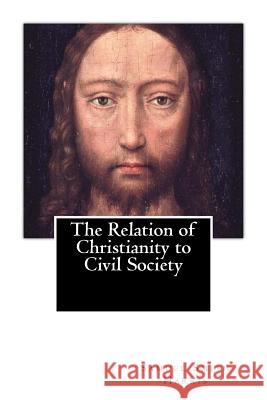The Relation of Christianity to Civil Society (1883) » książka
The Relation of Christianity to Civil Society (1883)
ISBN-13: 9781461172208 / Angielski / Miękka / 2011 / 228 str.
"Then went the Pharisees, and took counsel how they might entangle him in his talk. And they sent out unto him their disciples with the Herodians, saying, Master, we know that thou art true, and teaches the way of God in truth, neither cares thou for any man: for thou regardest not the person of men. Tell us therefore, What thinkest thou ? Is it lawful to give tribute unto Csesar, or not? "- St. Matthew xxii. 15-17. IN this passage we are told under what circumstances and with what design the question which is now to engage our thought was first proposed to the Founder of Christianity. No doubt the inquiry which the Pharisees and Herodians made was not only disingenuous, but was far more limited in its intent than ours must be. Their purpose was to betray Jesus into one of two alternative dangers in defining the attitude of what they regarded as a Jewish religious cult, toward a government that was at once foreign and despotic. Yet, whatever their purpose was, the formal reason upon which they proceeded was the obvious need that there should be some authoritative definition of the relation which Jesus intended should subsist between his teaching and the requirements of the existing government or civil society. That such a question should be propounded in some form was, indeed, inevitable. In the midst of the antagonisms, open and concealed, which agitated that restless age, neutrality in such a matter was believed to be impossible. Especially, for reasons which must hereafter engage our attention, the assumption of such neutrality would have been resented as quite intolerable in one who, like Jesus, claimed to be the anointed Prince of the house of David.
Zawartość książki może nie spełniać oczekiwań – reklamacje nie obejmują treści, która mogła nie być redakcyjnie ani merytorycznie opracowana.











